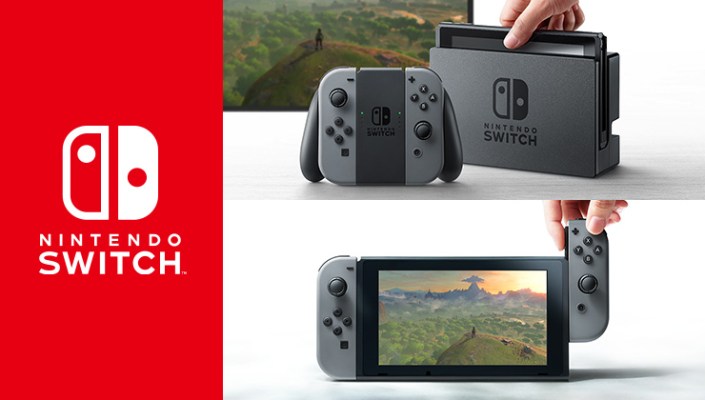Nintendo has revealed its new console, the Switch (which was codenamed the NX prior to its public debut). The thing that makes Switch different from any other console out there by a major game maker is its ability to quickly transition from home console to portable, thanks to a tablet format for the primary gaming hardware, and modular a modular ‘Joy-Con’ controller design.
Is the Switch a viable product? Well we won’t get the full picture until closer to its release in March 2017, but early signs are good – there seems to be plenty of interest in press covering the unveiling, and in social media response from fans. The Switch also has some predecessors we can look at for signs of what it might be like to use one, and gain those provide lots of reason to take heart.
The Switch uses a custom-designed Nvidia Tegra processor, which is the same powerful mobile processor that the company has used to power its own SHIELD line of mobile gaming hardware. SHIELD devices have always used Android as their OS, and have focused on game experiences that are either mobile-first or PC (and some console) ports to mobile platforms, but the idea of a device that’s just as comfortable at home or on the go is shared between the SHIELD lineup and the Switch.
Nvidia has done the hard work of learning a lot of lessons about what gamers want in a hybrid home/away gaming device, and the SHIELD lineup’s various permutations reflect that, including the original SHIELD portable, which is essentially an Android phone (without cellular capability) grafted onto a hardware controller, the SHIELD tablet, which is closest in concept to the Switch, and the SHIELD set-top box, which remains Android TV’s standout star.
All through the course of its evolution, SHIELD has been well-executed and delivered on the promise of a device that can fill in the mobile gaps for PC and more core console gamers looking for an on-the-go experience. And now, the Nintendo Switch looks poised to take lessons learned from those more niche successes and bring them to a larger audience.
The Switch’s seamless living room/portable transition looks like the next logical step for what SHIELD was trying to accomplish, and the Tegra tech behind the console also looks like it will better be able to achieve true console-level gaming play instead of an upscaled mobile experience. Plus, Nintendo will have a huge advantage over Nvidia’s own hardware thanks to its ecosystem and experience building top-to-bottom user experiences that are focused on gaming specifically throughout the OS.
To be clear, the relationship here seems like a pretty straightforward supplier/supplied arrangement between Nvidia and Nintendo – but SHIELD has always felt like a promise of something greater, and Nintendo’s substantiation of the hybrid mobile gaming vision could be exactly that.
